Religious Studies Collection (11 vols.)
Digital Logos Edition
Overview
Understand the world’s different religions and spiritual outlooks.
With the Religious Studies Collection, apologists, missionaries, and students of world religions have access to the seminal texts of major world religions and spiritual outlooks. Each volume includes contemporary editions of each text, as well as facing-page commentary, providing analysis and cultural context. Understand the Bhagavad Gita’s significance to Hindus. Examine Native American stories of the sacred. Review Buddhist perspectives on enlightenment.
In the Logos edition, these volumes are enhanced by amazing functionality. Important terms link to dictionaries, encyclopedias, and a wealth of other resources in your digital library. Perform powerful searches to find exactly what you’re looking for. Take the discussion with you using tablet and mobile apps. With Logos Bible Software, the most efficient and comprehensive research tools are in one place, so you get the most out of your study.

Key Features
- Gathers the seminal texts of major world religions and life philosophies
- Includes facing-page commentary offering analysis and cultural context
- Offers insight into diverse belief systems
Product Details
- Title: Religious Studies Collection
- Series: SkyLight Illuminations
- Publisher: SkyLight Paths Publishing
- Volumes: 11
- Pages: 2,656
- Resource Type: Commentaries
- Topic: World Religions
Individual Titles
- The Art of War—Spirituality for Conflict: Annotated & Explained translated by Thomas Huynh
- Bhagavad Gita: Annotated & Explained translated by Shri Purohit Swami
- The Book of Mormon: Selections Annotated & Explained annotated by Jana Riess
- Chuang-tzu: The Tao of Perfect Happiness—Selections Annotated & Explained translated by Livia Kohn
- Confucius, The Analects: The Path of the Sage—Selections Annotated & Explained translated by James Legge and annotated by Rodney L. Taylor
- Dhammapada: Annotated & Explained translated by Friedrich Max Müller and annotated by Jack Maguire
- Native American Stories of the Sacred: Annotated & Explained annotated by Evan T. Pritchard
- Selections from the Gospel of Sri Ramakrishna: Annotated & Explained translated by Swami Nikhilananda and annotated by Kendra Crossen Burroughs
- Tao Te Ching: Annotated & Explained translated by Derek Lin
- Perennial Wisdom for the Spiritually Independent: Sacred Teachings—Annotated & Explained annotated by Rami Shapiro
- The Meditations of Marcus Aurelius: Selections Annotated & Explained translated by George Long and annotated by Russell McNeil
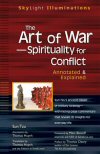
Written 2,500 years ago by Chinese general Sun Tzu, The Art of War is a treatise on military strategy. Many believe that the principles in this text transcend warfare and have practical applications to the conflicts and crises faced in everyday life. Translator and annotator, Thomas Huynh guides readers through Sun Tzu’s work, explaining the different principles.
Sun Tzu was a Chinese military general, strategist and philosopher who lived in the Spring and Autumn Period of ancient China.
Thomas Huynh is an author, translator, and scholar of the Chinese classic, Sun Tzu’s The Art of War.
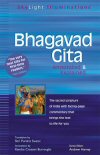
Millions of people turn daily to one of India’s holy books, the Bhagavad Gita, to instruct their spiritual practice. Composed in Sanskrit verse thousands of years ago, this text tells the story of a distraught warrior on the verge of battle and the counsel he receives from Krishna in human form. In just 700 lines, the Gita presents concise teachings on such topics as the immortality of the soul, meditation and yoga, worship and sacrifice, and the ideal of selfless action.
Shri Purohit Swami (1882–1941) was a Hindu teacher from Maharashtra, India.
Kendra Crossen Burroughs is a book editor. She compiled The Essential Ken Wilber and Entering the Tao: Master Ni’s Guidance for Self-Cultivation.
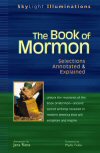
The Book of Mormon: Selections Annotated & Explained explores this epic that is read by more than twelve million members of The Church of Jesus Christ of Latter-day Saints (LDS) as the keystone of their faith. Probing the principal themes and historical foundation of this narrative, Jana Riess focuses on key selections that offer insight into contemporary Mormon beliefs and scriptural emphases, such as the atonement of Christ, the nature of human freedom, the purpose of baptism, and the need for repentance from sin. She clarifies the religious, political, and historical events that take place in the ancient communities of the Book of Mormon and their underlying contemporary teachings that serve as the framework for spiritual practices that lie at the core of Mormon life.
Jana Riess is the Religion Book Review Editor for Publishers Weekly magazine. She holds degrees in religion from Wellesley College and Princeton Theological Seminary, and a PhD in American religious history from Columbia University.
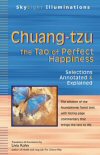
The Chuang-tzu is the second major text of the Taoist tradition. It was compiled in the third century BCE and follows the lead of the oldest of all Taoist texts, the Tao-te-ching (Book of the Tao and Its Potency). Using parable, anecdote, allegory, and paradox, the Chuang-tzu presents the central message of what was to become the Taoist school: a reverence for the Tao—the “Way” of the natural world—and the belief that one is not truly virtuous until one is set free from the burden of circumstance, personal attachments, tradition, and the desire to reform the world. Leading Taoist scholar Livia Kohn provides a modern translation of key selections from this text and accessible commentary on Taoist principles.
Livia Kohn is a leading Taoist scholar. She is professor emerita of religion and East Asian studies at Boston University. She is also author or editor of over 25 books and many articles on Taoism and East Asian religions, including Daoism and Chinese Culture, Daoism Handbook, and Health and Long Life: The Chinese Way.
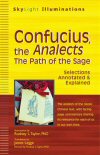
Twenty-six centuries after their origination, the principles laid down in the Analects of Confucius still act as the foundation of Chinese philosophy, ethics, society, and government, and play a formative role in the development of many Eastern philosophies. In this intriguing look at the meaning of the Analects, Rodney L. Taylor, the foremost American researcher of Confucius as a religious and spiritual figure, explains their teachings. He shows how Confucius advocates learning and self-cultivation to follow the “path of the sage” or “way of heaven.”
Alongside an updated version of the classic translation by Sinologist James Legge, Taylor provides informative and accessible commentary that illuminates the meaning behind selected passages from the Analects.
Rodney L. Taylor is professor of religious studies at the University of Colorado at Boulder, where he also served as director of Asian studies, chair of the department of religious studies, and associate dean of the graduate school. He is author of The Religious Dimensions of Confucianism, The Way of Heaven, The Confucian Way of Contemplation, and The Illustrated Encyclopedia of Confucianism.
James Legge (1815–1897) was the first professor of Chinese language and literature at the University of Oxford. In 1839, he served as a Congregationalist missionary to China and representative of the London Missionary Society in Malacca and Hong Kong from 1840 to 1873. He translated five books in the Sacred Books of the East series.
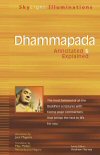
The Dhammapada (Path of the Buddha’s Teachings) is read by millions of Buddhists all over the world.
Originally composed in the ancient language of Pali, this text paints contrasting portraits of three levels of human existence—the fool, the wise one, and the enlightened one—and addresses specific aspects of experience, conduct, and belief that characterize the transformation from one of these modes of being to another.
Friedrich Max Müller (1823–1900) was a prolific editor and author born in Dessau, Germany. Fluent in Greek, Latin, Arabic, Persian, and Sanskrit, Müller would spend a successful career teaching at various universities and producing important translations. Along with the massive 50-volume The Sacred Books of the East, in which he was the managing editor, Müller’s works include The Gifford Lectures of 1888–92; India, What can it Teach Us?; Introduction to the Science of Religion; A History of Ancient Sanskrit Literature.
Jack Maguire is also the author of Essential Buddhism: A Complete Guide to Beliefs and Practices.
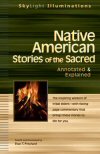
Drawn from tribes across North America, Native American Stories of the Sacred is a careful retelling of traditional stories. The stories include Son of Light’s quest to win back his captured wife from the monstrous Man-Eagle; humble Muskrat’s self-sacrifice to establish solid land so other beings might live; Water Spider’s solution for retrieving fire for all the animals; and White Buffalo Calf Woman’s gift of the sacred pipe to the people.
Evan T. Pritchard is a descendant of the Mi’kmaq people. Pritchard has taught Native American studies at Pace University, Vassar College, and Marist College and is the director of the Center for Algonquin Culture. He is also the author of several books, including Native New Yorkers and No Word for Time.
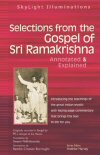
Indian mystic Ramakrishna taught that all religions are the revelation of God in his diverse aspects to satisfy the manifold demands of human minds. Many saw Ramakrishna as a saint or as a divine incarnation and a “supremely realized self.” Millions of devotees follow his message. This volume includes selections of Ramakrishna’s teachings and accessible commentary on their meanings.
Swami Nikhilananda was a monk of the Ramakrishna Order of India and played an integral role in introducing the teachings of Yoga and Vedanta to the West.
Kendra Crossen Burroughs is a book editor. She compiled The Essential Ken Wilber and Entering the Tao: Master Ni’s Guidance for Self-Cultivation.
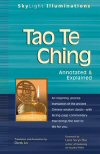
Reportedly written by a sage named Lao Tzu over 2,500 years ago, the Tao Te Ching is one of the most succinct spiritual texts ever written. The Tao Te Ching distills into poetry centuries of spiritual inquiry into the Tao—the “Way” of the natural world, the organizing principle of the universe. This volume includes insightful commentary, along with a new translation from the original Chinese. Lin’s translation has been lauded by critics for its accuracy and lyrical beauty.
Derek Lin is an award-winning author. His other works include The Tao of Daily Life and The Tao of Success.
Lao Tzu was an ancient Chinese philosopher and poet. He is best known as the reputed author of the Tao Te Ching and the founder of philosophical Taoism. In religious Taoism and traditional Chinese religions, he is revered as a deity.
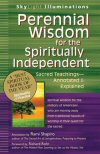
Some of life’s greatest questions include “Who am I?”, “Where did I come from?”, “Where am I going?”, “How shall I live?”, and “Why?” In this volume, Rabbi Rami Shapiro explores major world religions’—Christianity, Judaism, Islam, Hinduism, Buddhism, and more—answers to these questions.
Rami Shapiro is an award-winning author of over two dozen books on religion and spirituality. He received rabbinical ordination from the Hebrew Union College-Jewish Institute of Religion, and holds a PhD from Union Graduate School. A congregational rabbi for 20 years, Shapiro currently co-directs One River Wisdom School.
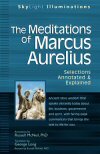
In his Meditations, Roman emperor Marcus Aurelius recorded his perspectives on Stoic philosophy. With facing-page commentary that explains the writings, author Russell McNeil provides a guide to key passages from Aurelius’ collected journal entries.
Marcus Aurelius (121–180 CE) was a Roman emperor from 161 to 180. He co-ruled with his brother, Verus, until Verus’ death, and his son Commodus until his own death. In his early years, he studied Greek and Latin, and the philosophical works of Epictetus.
Russell McNeil is a former professor at Malaspina University-College in British Columbia.
George Long was a British classical scholar. He held professorships in Greek and Latin at the University of London and the University of Virginia. He was the editor of Bibliotheca Classica from 1851 to 1862.
This title is included in the following collections
You can save when you purchase this product as part of a collection.
SkyLight Paths Illuminations S...
$549.99$329.99
Reviews
0 ratings

Dillon Lewis
3/11/2015
Do these include the full text along with commentaries, or are these just commentaries with some selected texts. I would be really interested in buying this set if it is also full text!